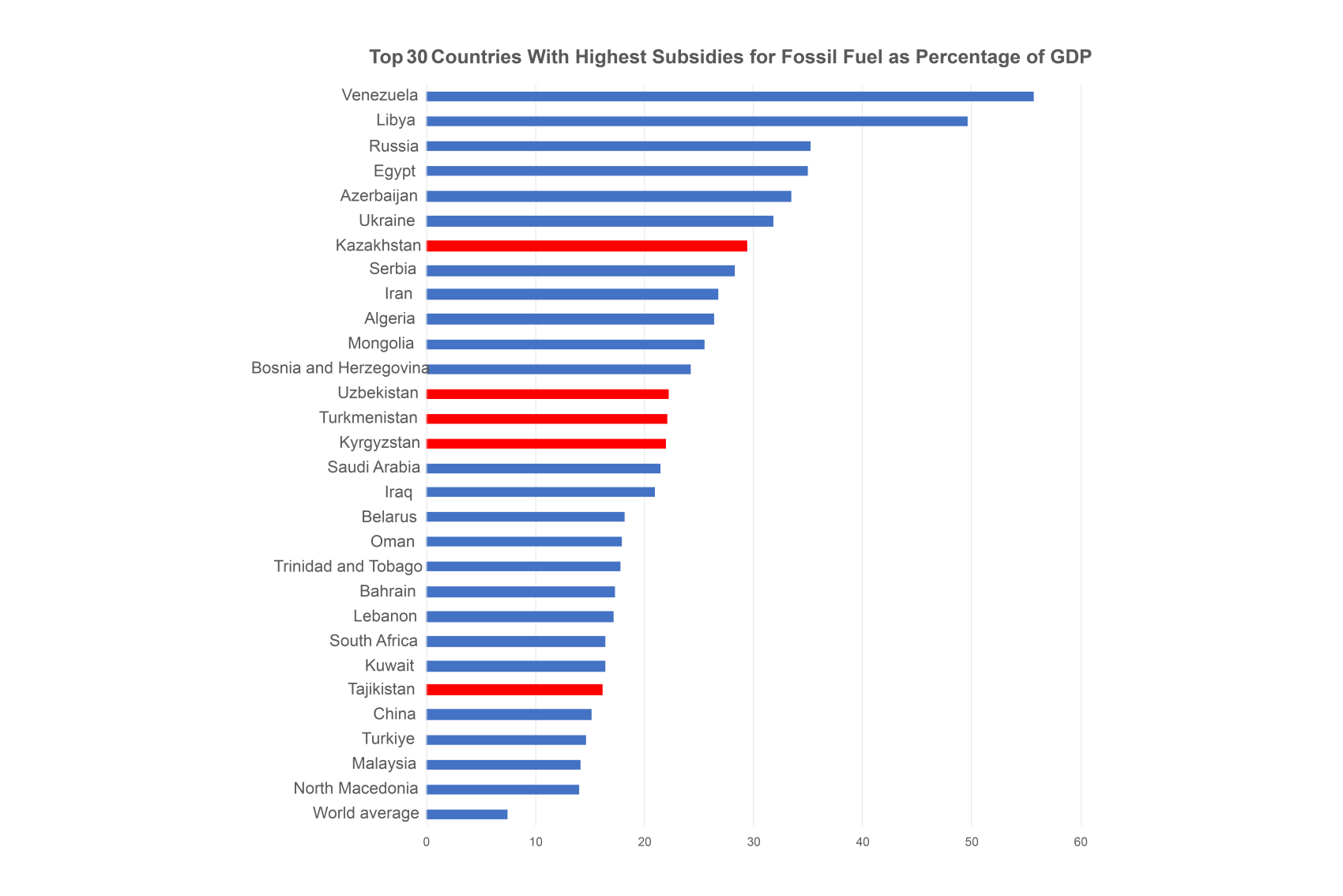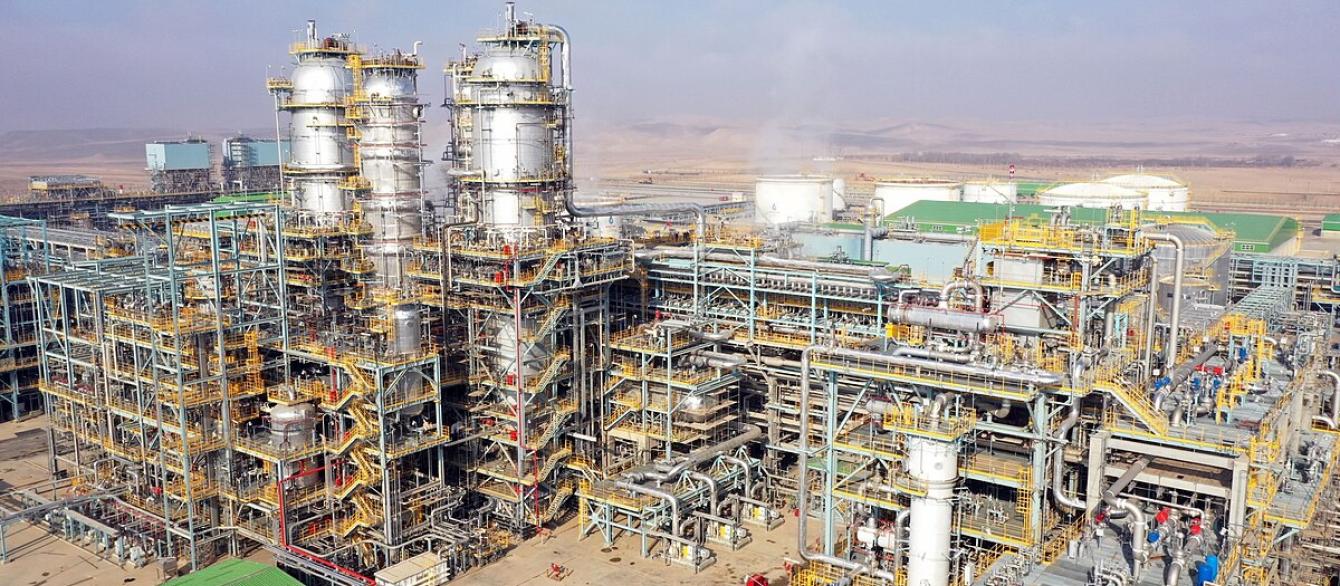Central Asia is in dire need of comprehensive greening initiatives to address the consequences of climate change. How will regional governments overcome the enormous obstacles in their way? On one hand, Central Asian leaders recently renewed their climate policy commitments, including ambitious goals for slashing greenhouse gases; this reflects, perhaps, a growing awareness of the devastating impacts of climate change for their countries — intense heat waves, water stress, and shrinking glaciers among them. The reality on the ground, however, looks far less optimistic, with Central Asian economies still heavily reliant on fossil fuels, as both producers and consumers. One vivid illustration of the tension between aims and practice can be found in data on the politically sensitive fuel subsidies long relied on by the region’s postcommunist states.
In promising developments, all five countries of formerly Soviet Central Asia — Kazakhstan, Kyrgyzstan, Tajikistan, Turkmenistan, and Uzbekistan — banded together and made a strong showing at December’s COP28 climate conference in Dubai. Their shared pavilion featured 270 speakers and drew over 3,000 visitors. Typically insular Turkmenistan, which holds some of the world’s largest natural gas reserves, pledged to cut its staggering methane emissions, reportedly the world’s fourth-largest. Oil-rich Kazakhstan (in 12th place worldwide) did the same, plus — aiming to raise the share of renewable energy used domestically from today’s 6% to 15% by 2030 — Astana clinched at least three international deals promoting investments in wind power.
Meanwhile, the challenges for Central Asia — where temperatures are rising more than in other parts of the world — remain steep, as my colleagues and I have written in our recently published open-access book Introduction to Climate Change in Central Asia. The biggest challenges include: limited state capacity to tackle climate change impacts, made worse by population growth, corruption, and a dearth of relevant scholarship; leaky and otherwise inefficient infrastructure, desperately in need of modernization and better management; insufficient regional collaboration, particularly in managing water resources; and weak efforts at decarbonization that make a large-scale transition to clean energy unlikely in the near term.
To illustrate Central Asia’s decarbonization challenges I will limit myself here to the telling data on fossil fuel subsidies, though there is no shortage of other examples — from growing coal consumption to simultaneous investment in clean energy and fossil fuels. Such subsidies are alarmingly high — triple the world average. The chart below shows total implicit and explicit fossil fuel subsidies, calculated by the International Monetary Fund, as a share of countries’ GDP.

Source: Author’s calculations using IMF data
Reducing these subsidies would theoretically give a huge boost to the development of renewable energy in Central Asia, where there is vast potential for hydropower, solar, wind, and green hydrogen energy. In practice, attempts to do so open onto a political minefield: Early this year, when Uzbekistan reimposed an excise tax on the country’s cheapest gasoline, public discontent followed. More dramatically, the lethal political violence of two years ago in Kazakhstan began with small protests over a spike in gas prices in the country’s hard-scrabble oil-producing towns.
Central Asia stands at a critical juncture, grappling with severe climate change impacts, water stress, and the looming threat of becoming an outsider in a decarbonizing world. To successfully navigate this challenging landscape and integrate into the new global zero-carbon economy, decisive actions are necessary. Central Asian leaders must prioritize radical cuts in public subsidies to fossil fuels and actively increase material efficiency in their economies. Implementation is difficult due to weak institutions, rampant corruption, and high fossil-fuel dependence. But only through bold steps can the region’s countries pave the way for a sustainable and resilient future, ensuring active participation in the ongoing global efforts to combat climate change.






